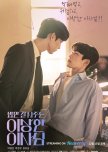
This review may contain spoilers
Mananambal: A Haunting Dive into Filipino Folklore with Nora Aunor at Her Best
Adolfo Alix Jr.’s Mananambal is a gripping exploration of Philippine mysticism wrapped in an eerie horror-thriller package. Set on the enigmatic island of Siquijor, the film follows a group of vloggers on a reckless hunt for viral content. Their target? Lucia (the legendary Nora Aunor), a traditional folk healer, or mananambal, who quickly proves to be far more than they bargained for. What starts as a sensationalist stunt soon spirals into a terrifying reckoning, as the island’s supernatural forces demand their due.The mananambal tradition, rooted in Visayan folklore, represents the dual nature of healing and harm, bridging the physical and spiritual worlds. This duality plays out brilliantly in Aunor’s portrayal of Lucia, a woman whose silence is more chilling than any spoken curse. With her face deglamorized and her signature expressive eyes doing all the talking, Aunor once again proves why she is a National Artist for Film. Her presence alone is reason enough to watch Mananambal—she doesn’t need words to convey power, sorrow, or menace.
Bianca Umali delivers a compelling performance as Alma, Lucia’s daughter, whose inner conflict provides the emotional core of the story. Yearning to escape the constraints of her mother’s mystical legacy, Alma’s arc is both tragic and enthralling. Her chemistry with Aunor is electric, particularly in the film’s latter half, where familial duty collides with personal ambition in unexpected ways.
On the other side of the spectrum, the city-slicker vloggers—played by Edgar Allan Guzman, Jeric Gonzales, Kelvin Miranda, and Martin Escudero—embody the recklessness of modern social media culture. Their arrogance and disregard for sacred traditions set the stage for a supernatural backlash. Miranda, in particular, shines as Liam, the reluctant outsider within the group, providing a grounded contrast to his more hedonistic companions.
Alix’s direction ensures that Mananambal never meanders, balancing horror with cultural introspection. While the story treads familiar revenge-horror territory, the execution is precise and atmospheric. The cinematography takes full advantage of Siquijor’s haunting beauty—dense forests, cascading waterfalls, and shadowy caves serve as both picturesque backdrops and ominous warnings.
That said, the film could have leaned even further into the emotional conflict between Lucia and Alma. There were moments hinting at a deeper confrontation between the power of healing and the temptation of vengeance, but the narrative opts for a broader supernatural horror climax instead. Nevertheless, the final act delivers a shocking gut punch, an elegant tragedy befitting its themes of fate and consequence.
Mananambal is a must-watch, not just for fans of horror, but for those interested in the rich tapestry of Filipino folklore. Alix crafts a film that is both thrilling and thought-provoking, offering chills and cultural resonance in equal measure. And, of course, there’s the inimitable Nora Aunor—whose eyes alone could haunt audiences long after the credits roll.
Was this review helpful to you?

A Fresh but Flawed Take on a Filipino Folk Hero
Jason Paul Laxamana’s Penduko reimagines the classic Liwayway character for a modern audience, blending folklore with a contemporary supernatural underworld. Released as part of the 2023 Metro Manila Film Festival, the film follows Pedro Penduko (Matteo Guidicelli), the son of a powerful faith healer, who rejects his heritage in pursuit of a more materialistic life. Drawn into an organisation called Hatinggabi, he uses his mystical gifts for profit but soon faces a deeper struggle—one that forces him to question his identity and destiny.One of the film’s biggest strengths lies in its adaptation of Filipino mystical traditions. The portrayal of albularyos, manggagaway, mananambal, and hukluban feels both authentic and visually compelling. The astral-plane battles, where healers combat hexes, offer a creative and culturally rich take on supernatural combat—refreshingly distinct from the usual Western fantasy influences. Additionally, the film avoids the tired “good vs. evil” trope, opting instead for a morally complex protagonist. Pedro isn’t a noble hero—he resents his father’s legacy and is even willing to resort to violence to achieve his goals. The film also resists turning his relationship with Liway (Kylie Verzosa) into an overplayed romantic subplot, which is a welcome departure from predictable storytelling.
However, the film struggles with thematic cohesion. Pedro is told he fails as a healer because his intent is to harm rather than to heal, yet there’s no clear moment of transformation. By the film’s end, he’s still resorting to brute force, making his supposed character growth feel unearned. The narrative builds toward an epiphany that never quite materialises, leaving the resolution feeling hollow. This may be setting up a sequel, but as a standalone story, it’s frustratingly incomplete.
Matteo Guidicelli brings physicality to the role, but his accent can be distracting, and the writing doesn’t help—Pedro’s character arc feels inconsistent, making it difficult to fully invest in his journey. Some dialogue is clunky, and a few performances border on cringeworthy, but the film still delivers enough charm to make it an entertaining watch. The villain is given a motive beyond sheer malice, which adds depth, but his "superpowers" could have been explored more effectively.
Visually, the film has its moments, but some CGI effects feel outdated, reminiscent of '90s fantasy films. That said, Penduko succeeds in world-building and injecting layers of social commentary, particularly on land grabbing and greed. Despite its flaws, it’s a step in the right direction for Filipino superhero films, and with some refinements, a sequel could truly elevate the franchise.
Would I watch a Penduko Part 2? Absolutely—but with the hope that it leans further into its strengths and tightens up its storytelling.
Was this review helpful to you?

This review may contain spoilers
Love, Language, and Lingering Looks
"See Your Love" is a Taiwanese romantic drama that thoughtfully balances lighthearted charm with moments of emotional depth, offering a unique love story that highlights the importance of communication—both spoken and unspoken.At its core, the series follows Yang Ji Xiang, a wealthy heir sent to Taiwan for business, and Jiang Xiao Peng, a hearing-impaired caretaker who unexpectedly becomes his lifeline. What starts as an uneasy partnership evolves into a tender romance, enriched by a narrative that delves into trauma, healing, and the complexity of human connections.
The Strength of the Leads
The standout feature of this series is undoubtedly the chemistry between Raiden Lin (Yang Ji Xiang) and Jin Yun (Jiang Xiao Peng). Jin Yun’s portrayal of a hearing-impaired character is so authentic that it’s easy to believe he shares his character’s condition. Lin complements him brilliantly, and their on-screen connection is palpable. Their journey from strangers to lovers feels organic, with each actor bringing layers of vulnerability and strength to their roles.
Supporting Cast and Subplots
The supporting cast adds texture, particularly Lin Chia Yo’s Cheng Feng Jie ("Jonathan"), whose witty banter and camaraderie with Ji Xiang provide much-needed levity. The secondary couple, while charming, doesn’t get enough screen time to fully develop, leaving their story feeling rushed and under-explored.
Themes and Representation
One of the series' greatest strengths is its representation of the deaf community, a rarity in mainstream media. Xiao Peng is not a helpless stereotype but a resilient and multi-dimensional character. The drama also touches on subtle biases faced by people with disabilities, though these themes sometimes feel under-utilised, serving more as a backdrop than a fully fleshed-out commentary.
Where It Falls Short
The pacing is uneven, with a playful, almost silly tone in the earlier episodes clashing with the heavier drama later on. The finale, in particular, feels rushed, with unresolved conflicts and a somewhat implausible resolution. Subplots involving assassins and business rivalries feel tacked on, detracting from the more compelling personal struggles of the leads.
Additionally, the frequent reliance on near-kisses, prolonged stares, and melodramatic flashbacks sometimes borders on cliché, while side characters like the fiancée and Xiao Peng’s parents remain one-dimensional.
The Heart of the Story
Despite its flaws, See Your Love thrives on its emotional resonance. The love story is heartfelt, and the leads' efforts to overcome their personal traumas and find solace in one another are genuinely moving. The series shines in its quieter moments, where small gestures and sign language convey more than words ever could.
Final Thoughts
If there’s one thing I would tweak about See Your Love, it would be giving Shao Peng a chance to showcase his Taekwondo skills in the final episode. It would have been a fantastic way to surprise Jonathan’s men and emphasize that Shao Peng is far from an ordinary person with a disability. A quick, action-packed moment could have highlighted his resilience and strength, adding an extra layer to his character and giving the finale a bit more punch—literally! It’s a small touch, but one that could have made an already memorable story even more impactful.
See Your Love is a heartwarming, if imperfect, drama. Its strengths lie in its leads’ chemistry, its meaningful representation, and its willingness to explore themes of connection and resilience. While the pacing and subplots could use refinement, the series offers plenty of laughter, tears, and feel-good moments to satisfy BL and drama enthusiasts alike.
It’s not groundbreaking, but it’s a solid, enjoyable watch—particularly if you binge it. If you’re looking for a love story with depth, heart, and a touch of quirkiness, this one’s worth a go.
Was this review helpful to you?

This review may contain spoilers
School Days and Second Chances: My Take on My Teacher
My Teacher (2022), directed by Paul Soriano, stars Toni Gonzaga as Emma Bonifacio, a teacher navigating her way back to the profession after a wrongful dismissal, and Joey de Leon as Solomon Bienes, a 70-year-old student chasing his long-overdue high school diploma. This film, which premiered as part of the 2022 Metro Manila Film Festival, has found a second life streaming for free on GMA Pictures' official YouTube channel. And let me tell you, it’s a mixed bag, but one worth unpacking.Like many, I initially passed on this movie, thinking it wouldn’t be worth my time. However, after giving it a chance, I can say this: it’s not as bad as the critics suggest, though it doesn’t quite rise to the occasion either. The story has its heart in the right place, with themes of forgiveness, second chances, and unexpected connections that manage to resonate, albeit in a somewhat surface-level way.
Toni Gonzaga shines as Emma, portraying the dedication and sacrifices of educators with genuine warmth. Her journey from a teacher with unconventional methods to someone deeply inspired by her own student is the emotional core of the film. Joey de Leon as Solomon adds charm, offering a unique perspective on lifelong learning and the idea that education doesn’t have an expiration date.
The film’s strongest moments come when it highlights the humanity of teachers—both their nobility and their flaws. It reminds us that teachers are not just authority figures but also individuals navigating their own struggles. However, it misses opportunities to dive deeper into pressing issues, such as systemic problems in education or the deeper motivations behind Solomon’s late pursuit of his studies. These themes, while touched on, remain frustratingly underexplored.
My Teacher is a feel-good tribute to educators, painting a nostalgic picture of school life while delivering its share of emotional moments. Yet, it often falters when trying to be profound. Some scenes feel forced, overly philosophical, or simply unnecessary, which detracts from the film's overall impact. It’s pleasant enough, but it lacks the depth to leave a lasting impression.
On the positive side, the film’s message of hope and perseverance does hit home, especially for students and teachers alike. It’s a gentle reminder that learning is a lifelong process and that education is a powerful tool for change. The ending ties things up neatly, offering a satisfying resolution to Emma and Solomon’s intertwined journeys.
While My Teacher doesn’t reinvent the wheel, it does offer a heartfelt tribute to teachers and the lessons they impart—both in and out of the classroom. It’s not groundbreaking cinema, but it’s a decent watch if you’re in the mood for something light and inspirational. Will I rewatch it? Probably not. But for a one-time viewing, it’s a charming, albeit imperfect, slice of life.
And yes, learning truly doesn’t stop, no matter your age. That’s a lesson worth carrying.
Was this review helpful to you?

This review may contain spoilers
A High-Potential Fantasy Romance Undermined by Format and Execution
“The Director Who Buys Me Dinner” delivers an intriguing premise: a young employee, Dongbaek, finds himself entangled in a centuries-old curse with his enigmatic CEO, Min Yu Dam. Adapted from the webtoon by Toesa and illustrated by Yang Eun Ji, the series had all the ingredients for a standout South Korean BL drama—fantasy, romance, and mystery. Unfortunately, it falls short of its potential due to its constrained format and underdeveloped storytelling.The short episode runtime—a staple of Korean BL dramas—proved to be a significant disadvantage here. With only 10 episodes, each averaging 16 minutes (minus credits and recaps), the series simply didn’t have enough time to delve deeply into its characters or unravel its fantasy elements. The result is a story that feels rushed and undercooked, leaving viewers with more questions than answers.
The fantasy premise is ambitious and unique, hinting at a love story spanning centuries. However, key elements of the curse remain unexplored: How did the curse originate? Why is it a curse at all? What happened during the centuries between the first Dongbaek and the present one? The lack of explanations makes the narrative feel incomplete and frustrating.
Character development also suffers. Dongbaek, the protagonist, often feels like a passive participant in his own story, reacting rather than engaging. Min Yu Dam, despite his tragic backstory, lacks the emotional depth and desperation one might expect from someone burdened with immortality. Denis, introduced as a potential wildcard, ends up feeling like a plot device with unclear motivations.
The series’ title suggests a recurring motif of dinners between Dongbaek and Yu Dam, but this stops after the first couple of episodes, which feels like a missed opportunity to build their relationship. Similarly, the chemistry between the leads is inconsistent, with their romantic moments often feeling restrained and lacking the passion needed to sell their connection.
That said, there are bright spots. The cinematography is polished, with several well-composed shots that enhance the story’s atmosphere. The music complements key moments, although it occasionally compensates for the lack of emotional resonance in the performances. The ending, while divisive, stands out as one of the show’s better-executed elements, offering a bittersweet conclusion that feels thematically fitting.
Ultimately, The Director Who Buys Me Dinner is a classic case of a great concept let down by its execution. The short format robbed the story of its depth, leaving viewers with unresolved questions and untapped potential. While the production team’s effort is evident, the series needed more time and resources to fully explore its ambitious narrative.
For fans of BL dramas, it’s worth a watch for the unique premise and some enjoyable moments. However, it serves as a reminder that certain stories require more room to breathe, and perhaps this one deserved a format that could do its fantasy romance justice.
Was this review helpful to you?

This review may contain spoilers
A Rockin' Ride into the Blue Room
In Blue Room, Rebel Rebel—a progressive rock band of privileged teens—faces a tough choice when they’re arrested for drug possession and taken to the “Blue Room.” Directed by Ma-an Asuncion-Dagnalan, the film features an impressive cast, including Elijah Canlas, juan Karlos, Harvey Bautista, Nourijune, Keoni Jin, and Soliman Cruz.This movie is a masterclass in filmmaking, with Asuncion-Dagnalan delivering sharp direction, a tight screenplay, and standout performances. It’s a powerful, thought-provoking dive into the consequences of our actions, with moments that are equal parts disturbing and deeply uncomfortable.
Going into the film, I had certain expectations based purely on the poster—no trailer for context—but the story turned out to be something entirely different and surprising. The opening act delves into the band’s dynamics and privileged lives, painting a picture of a group on the brink of something big. However, about 20 minutes in, a police checkpoint encounter flips the narrative on its head. The first act’s privilege-heavy tone gives way to a gripping exploration of corruption, as everything the band stood for is tested.
The second and third acts are where the movie truly shines. The tension is palpable, with the claustrophobic atmosphere, stirring performances, and a haunting score coming together to create an unforgettable experience. Elijah Canlas and Soliman Cruz deliver as expected, but Harvey Bautista and Nourijune are real standouts, leaving a strong impression.
The film doesn’t shy away from confronting police corruption, portraying it with unsettling honesty. From fabricated charges to blatant abuse of power, the injustices are laid bare. One particular moment, where Soliman Cruz’s character hides suspects in a secret room, had me cringing at the audacity of the lies and cruelty depicted. While it’s not a blanket condemnation of law enforcement, the story feels all too real, offering a chilling reflection of societal issues.
Everything in Blue Room feels meticulously crafted, from the tight pacing to the emotional weight of the performances and music. It’s an exquisite blend of storytelling and social commentary, delivering a thrilling and thought-provoking cinematic experience.
Was this review helpful to you?

This review may contain spoilers
A Rush Job with Potential
Bump Up Business is a short South Korean BL series adapted from a webtoon by RK Studio, airing on iQIYI. With 8 episodes of around 15 minutes each, it offers a unique glimpse into the K-Pop world, mixing fanservice with the realities of the industry. The plot revolves around Eden, a rookie idol about to debut, and Jihoon, an older celebrity in the same agency. As a pair, they’re marketed as a "business gay performance" couple—a premise meant to boost their popularity, but one that quickly blurs the lines between reality and performance as they grow closer.The first thing that struck me was the series’ K-Pop setting, which I found refreshing, though I’m not the biggest fan of the genre. Music lovers will appreciate the soundtrack, but the drama itself struggled to fit its 40-chapter webtoon source into a limited runtime. This was perhaps its biggest weakness. The pacing felt rushed, with too many subplots crammed into too little time, leaving key relationships—especially between the leads—underdeveloped. By episodes 7 and 8, I found myself checking the clock, sensing the show’s desperate race to wrap things up.
Despite these pacing issues, the actors—many of whom are idols in real life—delivered charming performances. Nine, in particular, reminded me of a young Seo Kang Joon, managing to be both endearing and amateurish. There were moments where I almost connected deeply with the characters, but the story didn’t give me enough time to truly care.
What stands out in Bump Up Business is its subtle critique of the K-Pop industry. The show highlights the performative nature of fanservice, a reality that most K-Pop fans are aware of but perhaps don’t always acknowledge. The tension between pretending to be gay for fame while not being accepted as truly queer is poignant, especially in a conservative society like South Korea’s. The series flirts with these deeper themes, but never fully explores them, leaving us wanting more.
The ensemble cast, featuring members of OnlyOneOf, was solid overall, though some, like Rie and Junji, didn’t get much screen time. KB, who played the antagonist, was particularly memorable—so much so that I found myself genuinely disliking his character, a testament to his acting.
The show, while not groundbreaking, has its moments of entertainment. There’s light-heartedness in the way the leads banter and tease each other, and the music, composed by the idols themselves, is a highlight. Still, the absence of a proper kiss scene, for instance, left me feeling a bit cheated—especially when it seemed like the series was building up to one.
In short, Bump Up Business is a decent watch. It’s not perfect by any means—the rushed pacing, underdeveloped plotlines, and missed opportunities hold it back—but it does offer a fun and interesting take on K-Pop and BL. If you’re into K-Pop or BL dramas, it’s worth checking out, if only to see how the genre is evolving in South Korea.
Was this review helpful to you?

This review may contain spoilers
A Breeze of Love: A Refreshing and Intimate BL
"A Breeze of Love" is a charming South Korean BL series that aired in late 2023, featuring 8 episodes, each about 18 minutes long. Directed by and starring Shin Jeeong You as Ban Dong Wook, alongside Woo Ji Han as Lee Do Hyun, the story is adapted from the webtoon "Weather Forecast Love." The plot revolves around Do Hyun, the captain of a basketball team, who reunites with his first love, Dong Wook, after years apart. Their reunion is sparked by Dong Wook filling in for an injured teammate, and it doesn’t take long for old feelings to resurface.The series kicks off with a fairly straightforward premise, keeping things simple but effective, given its short runtime. The pacing is spot-on, focusing mostly on the main leads and giving them ample time to develop their story. Despite the limited episodes, the narrative flows smoothly, never feeling rushed, and maintains a good balance between the romantic tension and lighthearted moments.
One of the standout aspects of this show is its lovely cinematography—typical of K-drama productions—with soft lighting and close-up shots that really capture the intimacy between the characters. The chemistry between the leads is undeniable, though it leans a bit more into the angsty side, especially with the recurring theme of Dong Wook relying on Do Hyun as his “sleeping pill.” It’s a bit melodramatic at times, with scenes of rain-drenched confessions and sports sequences, but it works well within the genre.
I have to give a nod to the attractive cast—Shin Jeeong You and Woo Ji Han are both incredibly charismatic, and their performances help carry the emotional weight of the story. It’s refreshing to see more K-pop idols like them venturing into the BL genre, and hopefully, it's not just a trend. Woo Ji Han, in particular, shines with his charm, making it easy to root for his character. The side characters, while not overexposed, add a nice touch to the story, and I was pleased to see Seung Joo get his happy ending. It’s also great that the finale gave us a whole episode to enjoy the leads as a couple, which is something a lot of BL dramas tend to rush through.
From the very first episode, the series pulls you in with its beautifully shot scenes and solid performances. The close-ups, lighting, and overall direction are quintessential K-romance, and the chemistry between the leads is palpable. The show’s quiet moments are where it really shines, with lingering glances and subtle touches that speak volumes without the need for heavy dialogue. It’s these delicate moments that build the tension and keep you invested in their journey.
For anyone who enjoys a short but sweet series with a blend of yearning, angst, and soft romance, "A Breeze of Love" is definitely worth a watch. It’s a lovely escape with aesthetically pleasing cinematography and a story that, while simple, tugs at your heartstrings in all the right ways. If you’re into BL dramas that focus on character-driven stories with emotional depth, this one’s a solid choice.
Was this review helpful to you?

Downright Depressing
"Kalel, 15" - A Thought-Provoking Journey into the Depths of Youth and Stigma
At just fifteen years old, Kalel finds himself grappling with a reality that most teenagers never have to face. As the son of a priest and HIV positive, he navigates life amidst a sea of tensions, secrets, and societal stigmas. "Kalel, 15" is a poignant exploration of the multifaceted issues surrounding HIV, Filipino youth, dysfunctional families, and the complexities of Christian morality.
From the outset, the film captivates with its brilliant storytelling, acting, and cinematography. Within the first five minutes, viewers are drawn into Kalel's world, which feels refreshingly unique and authentic. The decision to film in stark black and white adds a layer of grittiness and darkness that perfectly complements the film's themes.
Yet, amidst the film's visual and narrative prowess lies a stark truth: the lack of dialogue surrounding HIV in the Philippines. Kalel's journey serves as a sobering reminder of the consequences of societal silence and stigma. In a Catholic nation where discussions about sex are often taboo, HIV is treated as a dirty secret rather than the urgent epidemic it truly is. The film unapologetically exposes the hypocrisy and shortcomings of a society unwilling to confront uncomfortable truths.
The cinematography further underscores Kalel's isolation and despair. As the film progresses, the frame gradually shrinks, symbolizing the suffocating pressure and confinement of his circumstances. Despite his attempts to find hope in a world devoid of color, Kalel is continuously let down by those around him.
However, amidst the film's palpable anger lies a deeper sense of insight and urgency. "Kalel, 15" channels its rage into a powerful examination of societal neglect and the dire consequences it inflicts upon vulnerable individuals like Kalel. Through his experiences, the film forces viewers to confront uncomfortable truths about sex, stigma, and the failure of empathy.
In its entirety, "Kalel, 15" is a mind-blowing and thought-provoking cinematic experience. It serves as a stark reminder of the importance of open dialogue, empathy, and action in addressing issues like HIV and youth sexuality. This film is not just important; it is essential viewing for anyone seeking to understand the complexities of stigma and the resilience of the human spirit.
Was this review helpful to you?

This review may contain spoilers
So much better than Enchante
this is so much better that Enchantethe plot is more realized and the acting a lot better
the pacing is good too however, there plenty of loose ends
most subplots were not resolved
feels like the wristers just lost control along the way and ran out of ideas or had limited time to flesh out everything and put it together in 12 episodes
-They could have shown more of Jack's depression how it affected him and how it affects the job
-What is Time so angry about?
-Tian's mom is complicit with her her abuse by her own step-father, to the point of suicide and only said sorry about it and hugged it out
- Thup knew the truth all along, then why is he rude to Cher the entire time? Why is he so mad and just communicates when he needs money?
- the supporting characters were really entertaining but they were not doing anything in the last 4 episodes
- the whole side-plot of the gossiping employees went nowhere
Was this review helpful to you?

This review may contain spoilers
Blends Folklore, Fear and Fate that Stuns with Heart and Horror
I honestly can’t remember whether I saw the trailer or the pilot first — but one lazy night while scrolling through iQIYI, I stumbled upon Khemjira, and that little moment of curiosity turned into a full-blown obsession. The trailer alone was breathtaking — atmospheric, emotional, and haunting in the best possible way. It was one of those rare moments when you instantly know: this is something special. So I started watching, and within the first episode, I was completely sold. No regrets at all — just awe.1. A Curse, a Name, and a Fate That Must Be Broken
Khemjira (เขมจิราต้องรอด, literally “Khemjira Must Survive”) is a 2025 Thai supernatural romantic Boys’ Love (BL) series that redefines what the genre can be. The story follows Khemjira — or “Khem” — a young man burdened with a generational curse that dooms every male in his family to die before reaching the age of 21. To protect him, his mother gives him a feminine name, believing it will confuse the spirits and shield him from fate.
As his 21st birthday approaches, the curse begins to stir once more. Khem starts seeing spirits and experiencing eerie, otherworldly events that threaten his sanity and his life. His loyal friend Jet — a gifted young man with spiritual abilities — takes him to the rural province of Ubon Ratchathani to seek help from Pharan, a powerful shaman and Jet’s mentor.
But there’s a deeper bond between Khem and Pharan than either initially realises: they were husband and wife in a past life, and the curse that haunts Khem now is the karmic echo of the tragedy that tore them apart centuries ago. What follows is a haunting, emotional journey of love, redemption, and the struggle against destiny.
2. The Magic of Storytelling
Directed by Panuwat Inthawat, Kittipat Champa, and Patarapon To-oun, and written by Supachod Kajonsiripong, Khemjira is based on the novel Khemjira Must Survive by Cali. The series is produced by Domundi TV, a studio often associated with light-hearted BL romances — but here, they’ve outdone themselves. This isn’t just another love story. It’s an atmospheric, beautifully woven supernatural epic that balances romance, folklore, and horror with an artistry rarely seen in Thai BLs.
The series stars Namping Napatsakorn Pingmuang as Khemjira Chandrapisut, Keng Harit Buayoi as Master Pharan Rueangdet (also known as Phawat or Pheem), FirstOne Wannakorn Reungrat as Jet, Green Ausadaporn Siriwattanakul as Ramphueng, and Tle Matimun Sreeboonrueang as Chan. Each one of them delivers performances that hit the perfect emotional pitch — layered, raw, and deeply affecting.
3. Visual Poetry and Haunting Soundscapes
Cinematographically, Khemjira is simply stunning. The rural landscapes of Thailand are captured with painterly precision — misty mornings, lush temples, moonlit forests — every frame feels alive and textured. The interplay of light and shadow mirrors the story’s balance between love and fear, human tenderness and supernatural dread.
The 2:1 aspect ratio gives the series a cinematic quality that sets it apart from typical BL productions. The special effects are impressive, especially the ethereal ghost sequences and the mystical energy of Pharan’s spells. Episode 9, in particular, showcases breathtaking visual effects that rival high-budget Thai horror films.
Complementing the visuals is a score by Jaithep Raroengjai, whose haunting compositions are practically a character on their own. The music ranges from eerie silences to ritualistic crescendos — an aural experience that makes every emotional moment hit harder. The opening theme, which avoids spoiling any plot details, is easily one of the best BL intros in recent years.
4. Stellar Performances and Emotional Depth
What elevates Khemjira beyond its genre peers is the acting. Namping gives Khem a quiet vulnerability that draws you in — you can feel his fear, confusion, and longing with every expression. Keng, on the other hand, is effortlessly magnetic as Master Pharan — stoic yet soulful, mysterious yet tender. Together, their chemistry is palpable, creating moments that are both intimate and heartbreaking.
Green Ausadaporn as Ramphueng deserves a special mention. Her performance is so layered and tragic that she steals every scene she’s in. Rather than being a simple villain, Ramphueng becomes the emotional anchor of the series — a reminder that even the darkest spirits were once victims of love and loss.
Supporting roles from FirstOne and Tle bring balance to the intensity, offering levity, loyalty, and heart. They humanise the story’s heavier moments, making the emotional stakes feel even higher.
5. Culture, Karma, and Craft
Khemjira doesn’t just use Thai folklore as decoration — it lives and breathes it. The rituals, chants, and spiritual beliefs are depicted with care and authenticity, grounding the supernatural elements in real Thai culture. The series honours Buddhist philosophies and shamanic traditions, exploring karma, past lives, and redemption without losing emotional accessibility for international viewers.
Domundi deserves huge credit here. Known for BLs like The Next Prince and Cutie Pie, the studio’s productions have always looked good — but Khemjira finally gives them substance to match their style. It’s the perfect blend of high production value, emotional storytelling, and cultural richness.
6. A Bold Step Forward for Thai BL
It’s also refreshing to see a BL series embrace darkness. Khemjira doesn’t shy away from fear, death, or tragedy — yet it never forgets its romantic heart. It’s not just a love story between two people, but between souls, lifetimes apart. The horror amplifies the love, and the love humanises the horror.
The pacing might feel slow to some — not quite slow-burn, but deliberately meditative. Yet that’s exactly what makes it work. Each episode, some running close to two hours, feels like a complete chapter in an unfolding novel. And remarkably, it never drags. Every minute has purpose, leading the story toward an ending that’s both devastating and deeply satisfying.
7. A Finale Worth Waiting For
By the final two episodes, Khemjira ties its threads together with grace and emotion. Some may find the “bonus” segments a bit uneven in editing and tone, but the finale as a whole delivers everything it promised: resolution, catharsis, and a lasting emotional impact. The show never loses sight of what it set out to do — tell a story of love that defies life, death, and karma.
8. Final Verdict
Khemjira is nothing short of a revelation — a genre-bending masterpiece that redefines the boundaries of Thai BL. It’s horror that touches your heart, romance that chills your spine, and folklore that lingers in your soul.
Visually stunning, emotionally resonant, and culturally grounded, it’s one of those rare series where everything clicks — story, acting, music, and heart. It’s the kind of show that reminds you why you fell in love with Thai dramas in the first place.
If you’re looking for something that’s more than just romance — something haunting, meaningful, and breathtakingly beautiful — Khemjira is your next must-watch.
Domundi has finally found its masterpiece.
⭐ Rating: 10/10 — A haunting, heartfelt triumph that deserves every bit of praise.
Was this review helpful to you?

This review may contain spoilers
A Sweet Tune to the Heart
First Note of Love is a 12-episode Taiwanese BL (Yaoi) series directed by Shiue Bin Jian, streaming on GagaOOLala from August to October 2024. At its core, it’s a story about love, healing, and the power of music, told through the connection between Neil (Charles Tu), a well-known guitarist still haunted by the past, and Sea (Michael Chang), a gifted young composer who’s secretly been his fan.Six years after losing his brother and bandmate Matt, Neil is struggling with grief, anxiety, and stage fright. Enter Sea—an unpolished but passionate composer invited to collaborate with his idol. What begins as a rocky partnership, with Neil dismissing Sea as undeserving, gradually turns into something tender and transformative. Sea’s honesty and love for music slowly chip away at Neil’s walls, promising a heartfelt journey of growth, understanding, and healing.
The series shines in how it frames their evolving relationship. From awkward clashes to becoming a harmonious duo—in both music and love—their slow-burn romance feels genuine and deeply human. Supporting characters add colour too, especially Sea’s cheeky friend Liang and Neil’s colleague Mei, keeping the tone fresh and playful. There are also clever twists that subvert expectations, keeping the narrative from falling into clichés.
Visually, the production holds up well, with thoughtful cinematography (though a few time jumps could have been clearer). What really elevates the show, though, is the music. The soundtrack isn’t just background—it’s woven into the storytelling, with lyrics that echo the characters’ struggles, hopes, and dreams. The performances from Tu and Chang bring maturity and nuance, and even the subplot with Orca, a Thai character navigating a language barrier, is handled with refreshing realism.
In the end, First Note of Love hits all the right notes: a moving story of love and loss, grounded in music’s power to heal. With its heartfelt themes, well-drawn characters, and a soundtrack that lingers long after the credits roll, it’s a warm, soulful watch that will resonate with anyone who’s ever found comfort in both love and song.
Was this review helpful to you?

This review may contain spoilers
A Messy, Beautiful Slice of Life
Moonlight Chicken isn’t just about serving up plates of chicken rice—it dishes out a deeply emotional and beautifully raw story of love, regret, and second chances. This slice-of-life romantic drama, directed by P’Aof (Noppharnach Chaiyahwimhon), stands out as one of GMMTV’s finest, offering a refreshingly mature take on LGBTQ+ relationships.Set against the backdrop of a humble late-night eatery, the series follows Jim (Earth Pirapat), a street food vendor who keeps his heart as guarded as his business. One fateful evening, he crosses paths with Wen (Mix Sahaphap), a charming yet complicated young man. What starts as a fleeting one-night encounter slowly simmers into something deeper—but only if Jim is willing to let go of his past and embrace the possibility of love.
Released on February 8, 2023, via GMMTV’s YouTube channel, this eight-episode drama boasts a stellar cast, including Fourth Nattawat as Jim’s headstrong nephew Li Ming, Gemini Norawit as his deaf love interest Heart, Khaotung Thanawat as the heartbreakingly earnest Gaipa, and First Kanaphan as Wen’s possessive ex, Alan.
Few dramas capture the messiness of real love as well as Moonlight Chicken. Unlike many BL series that lean into dreamy romance, this one is flawed, complicated, and painfully real. Jim isn’t your typical brooding male lead—he’s a man weighed down by responsibilities, trying to balance his small business, his nephew’s future, and the fear of getting hurt again. Wen, on the other hand, refuses to let Jim push him away, despite carrying emotional baggage of his own.
The side characters add incredible depth. Li Ming and Heart’s slow-burn romance is one of the most rewarding arcs in the show, tackling themes of self-worth and breaking free from limitations. Fourth and Gemini deliver standout performances, with Gemini’s ability to convey emotion without spoken dialogue making his portrayal of Heart particularly moving. Meanwhile, Khaotung’s performance as Gaipa is nothing short of an acting masterclass, his restrained yet powerful portrayal leaving a lasting impact.
Beyond romance, Moonlight Chicken explores economic struggles, generational conflicts, disability representation, and even the cost of living in modern Thailand. These themes aren’t just background noise—they actively shape the characters' choices, making their journeys feel authentic and grounded.
While the series’ eight-episode run means some themes don’t get the depth they deserve, it never feels rushed. Every scene is purposeful, every conversation weighted with meaning.
It’s no exaggeration to say this is one of the best performances from Earth, Mix, and Khaotung. Earth, playing a man older than his actual age, delivers a deeply nuanced portrayal of Jim, balancing warmth and hesitation. Mix brings layered vulnerability to Wen, making him more than just a lovestruck young man. And Khaotung? His portrayal of Gaipa is so heartbreakingly raw that it deserves to be studied by aspiring actors.
If there’s one minor critique, it’s that Earth and Mix look closer in age than the script suggests. Since Jim is meant to be significantly older, the show occasionally reminds us of this through dialogue. But honestly? Earth sells it through performance alone, so it’s hardly a deal-breaker.
Moonlight Chicken isn’t just a love story—it’s a reflection on life’s uncertainties, second chances, and the courage to move forward. It’s a drama that lingers long after the credits roll, perfect for both BL fans and anyone who appreciates authentic, emotionally rich storytelling.
If you’re after a romantic drama that’s equal parts heartfelt and thought-provoking, Moonlight Chicken is a must-watch. Short, deeply moving, and beautifully acted, this series proves that sometimes, the most meaningful love stories happen when you least expect them.
Was this review helpful to you?

This review may contain spoilers
Choco Milk Shake: A Sweet and Whimsical Treat
Choco Milk Shake by Strongberry is a charming and unique addition to the Korean BL scene. Known for their well-crafted short films and series, Strongberry takes a leap with this full-length series, and it doesn't disappoint. The show aired from October 25, 2022, to December 20, 2022, and features 11 episodes written by Ahn Ji Hee.The premise is delightfully whimsical: Jung Woo (Ko Ho Jung) is a young man who has faced profound loss—his parents and his beloved pets, Choco the dog and Milk the cat, all died in a tragic accident. Fast forward to the present, and Jung Woo is living a solitary life until one evening, two strangers knock on his door. To his shock, they claim to be the reincarnated versions of Choco (Lee Jae Bin) and Milk (Kim Seung Hyuk). The series then follows this peculiar trio as they navigate their renewed life together, blending light-hearted moments with deeper emotional undertones.
From the get-go, the series captures attention with its cute and quirky concept. The first episode leaves you with many questions, particularly about how a dog and cat could return as fully functional humans. While it takes a while for the show to provide answers, it remains engaging throughout.
The portrayal of Choco and Milk is particularly noteworthy. Both characters retain distinct traits from their animal pasts, adding a layer of humor and charm to the series. Thankfully, the show avoids overdoing these characteristics, striking a balance between their animalistic quirks and human behaviors.
The chemistry among the characters is another strong point. The romance develops naturally, with feelings growing gradually and convincingly. However, the series does a brilliant job of exploring themes beyond just romance, touching on loss, acceptance, and the different ways individuals cope with grief. The actors, especially Lee Jae Bin and Kim Seong Hyuk, deliver performances that are both convincing and endearing, embodying their roles with a depth that elevates the story.
Production-wise, the series is impressive, although there are moments, particularly early on, where the setting feels a bit too empty, detracting from the realism. Fortunately, this issue is addressed as the plot progresses, tying it into the story in a clever way.
Overall, Choco Milk Shake is a delightful watch that blends light-hearted fun with moments of emotional depth. Despite its short length, it manages to deliver a well-rounded and satisfying narrative, making it a standout in the Korean BL genre. It’s the perfect series to binge-watch, and it leaves you wanting more—a testament to its charm and the quality of Strongberry’s storytelling.
Was this review helpful to you?

This review may contain spoilers
The Eighth Sense: A Raw and Powerful Exploration of Mental Health
The Eighth Sense is a refreshing departure from the typical South Korean BL drama. Instead of relying on sugary sweetness, it delves deep into the complexities of human emotion and relationships. This series stars Lim Ji Sub as Seo Jae Won and Oh Jun Taek as Kim Ji Hyun, delivering performances that are both raw and captivating.The story unfolds slowly, painting a portrait of two young men grappling with their own personal struggles. Ji Hyun, a newcomer to the bustling city, is trying to find his place, while Jae Won, a seemingly carefree ex-military man, hides a deep-seated battle with mental health. Their paths intertwine, and a tender romance begins to blossom, but it's the characters' individual journeys that truly shine.
One of the series' greatest strengths is its honest portrayal of mental health. Jae Won's struggles with depression and suicidal thoughts are handled with sensitivity and care, offering a glimpse into the darkness that can consume someone from within. The show doesn't shy away from difficult topics, and it's this unflinching approach that makes it so impactful.
The acting is superb. Both Lim Ji Sub and Oh Jun Taek deliver performances that are both nuanced and emotionally charged. Their chemistry is palpable, but it's their individual portrayals of complex characters that truly stand out. The supporting cast is also excellent, providing depth and dimension to the story.
While The Eighth Sense is a powerful and thought-provoking drama, it's important to note that it's not for everyone. The subject matter is heavy, and the pacing is slow. However, for those willing to invest the time, it's a truly rewarding experience.
Ultimately, The Eighth Sense is a testament to the power of storytelling. It's a drama that lingers in your mind long after the credits roll.
Was this review helpful to you?




